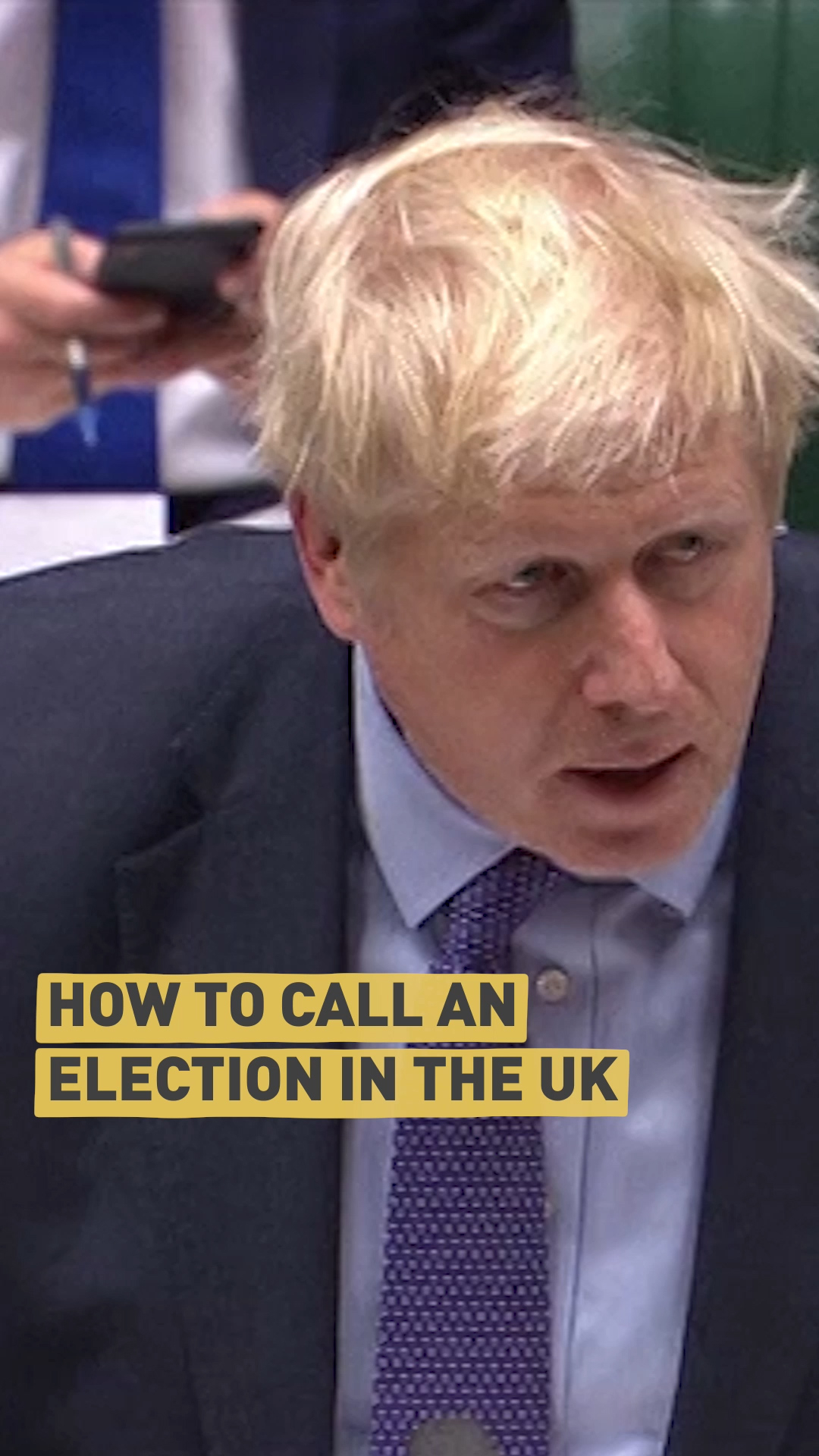UK Prime Minister Boris Johnson says he wants a general election if the European Union agrees to delay Brexit until 31 January. But it is not as easy to call an election as it might seem. Here are three ways to do it:
02:22

Option 1:
The Fixed-term Parliaments Act of 2011 provides for general elections to be held every five years unless two-thirds of MPs vote for a motion for a general election sooner – that means Johnson needs 434 of 650 MPs to vote for an election. It leaves the Conservative Party (which currently has 288 MPs) needing opposition parties to agree to the idea of an election.
Option 2:
Change the Law. Boris Johnson could attempt to pass a bill to repeal the Fixed-term Parliaments Act of 2011. He would only need a simple majority for that. So 320 votes would be needed, rather than the 434 if the election was called within the rules set out in the Fixed-term Parliaments Act.
Option 3:
Call for a vote of no confidence, and lose (deliberately or otherwise). Johnson has proved to be open to a variety of measures to achieve his aims, but this one could be risky. If he proposes a motion of no confidence and loses, opposition parties have 14 days to attempt to form a government of their own. If they fail to win a confidence vote within the two weeks, an election will have to happen. But the risk for Johnson is that Labour, the Scottish National Party, the Liberal Democrats and various anti-Brexit independents could form a temporary coalition to, for example, call a fresh referendum on Brexit.